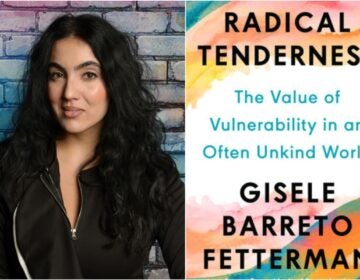Facts aren’t enough: The psychology of false beliefs

The myth that vaccines cause autism has persisted, even though the facts paint an entirely different story. (Renee Klahr)
In 2012, as a new mom, Maranda Dynda heard a story from her midwife that she couldn’t get out of her head. The midwife told her that years earlier, something bad had happened after she vaccinated her son. One minute he was fine, and the next, he was autistic. It was like “the light had left his eyes,” Maranda recalled her saying. The midwife implored Maranda to go online and do her own research. So she did.
She started on Google. It led her to Facebook groups, where other moms echoed what the midwife had said.
“And they were just practically bombarding me with information,” says Maranda. “Telling me, ‘Your midwife’s right. This is why I don’t vaccinate. This is what happened to my child who I did vaccinate versus my child who I didn’t vaccinate.’ Things like that.”
Maranda trusted them. She says it wasn’t long before she had decided she wasn’t going to vaccinate her child, either.
Eventually, she did more research and realized that the purported link between vaccines and autism wasn’t real. She changed her mind, and vaccinated her daughter. But looking back, she can’t believe how easy it was to embrace beliefs that were false.
“It is so, so easy to Google ‘What if this happens’ and find something that’s probably not true,” Maranda says. “Don’t do that.”
This week on Hidden Brain, we look at how we rely on people we trust to shape our beliefs, and why emotion can be more powerful than facts.
Hidden Brain is hosted by Shankar Vedantam and produced by Parth Shah, Jennifer Schmidt, Rhaina Cohen, Thomas Lu and Laura Kwerel. Our supervising producer is Tara Boyle. You can also follow us on Twitter @hiddenbrain.
Additional Resources:
The Influential Mind: What the Brain Reveals About Our Power to Change Others by Tali Sharot
The Misinformation Age: How False Beliefs Spread by Cailin O’Connor and James Owen Weatherall
Do as I Say, Not as I Do, or, Conformity in Scientific Networks by James Owen Weatherall and Cailin O’Connor
9(MDAzMzI1ODY3MDEyMzkzOTE3NjIxNDg3MQ001))




